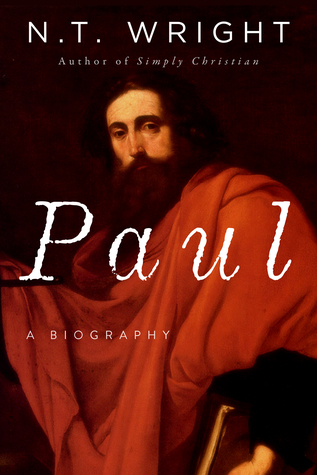More on this book
Community
Kindle Notes & Highlights
Abraham’s faith, in other words, was the hallmark of the covenant that God established with him. It was the sign, the badge, of his covenant membership.
Gamaliel, at least as portrayed in Acts, advocated the policy of “live and let live.” If people wanted to follow this man Jesus, they could do so.
this new movement was from God, it would prosper; if not, it would fall by its own weight.
Gamaliel believed in living and letting live. Saul believed in zeal.
“There is no longer Jew or Greek; there is no longer slave or free; there is no ‘male and female’; you are all one in the Messiah, Jesus.”
To be baptized was therefore to die and rise with Jesus, to leave behind the old life and to be reborn into the new one.
His actual name
was Joseph, but Luke explains that the Jesus-followers in Jerusalem gave him the nickname Barnabas, which means “son of encouragement.”
Barnabas shared Paul’s view that with the death and resurrection of Jesus the barriers to Gentile inclusion had gone.
Paul tended to concentrate on major population centers, relying on the movement of people and trade in and out of the great cities to help spread the word.
Paul’s “missionary” journeys were not simply aimed at telling people about Jesus in order to generate inner personal transformation and a new sense of ultimate hope, though both of these mattered vitally as well. They were aimed at the establishment of a new kind of kingdom on earth as in heaven. A kingdom with Jesus as king.
the word “satan” is the Hebrew term for “accuser,” used
I suspect that Paul was deliberately finding ways to make the point: there is one “Lord,” one Kyrios, and it isn’t Caesar.
Kyrios Iēsous Christos, “Jesus Messiah is Lord.”
Barnabas himself came originally from Cyprus,
They lived a life of prayer, fasting, community, and care for the poor and widows.
Paul returns to Jerusalem for the last time in the mid-50s after his extensive travels in Greece and Turkey.
The original practice in Antioch had reflected the belief that all Jesus believers, whether circumcised or not, belonged at the same table. The people who came from Judaea to Antioch were clearly saying that table fellowship with uncircumcised Gentiles was wrong and that Jewish Jesus-followers, as loyal Jews, should withdraw.
What matters is being part of the covenant family, and the covenant family is not defined by Jewish law, but “through the faithfulness of Jesus the Messiah.”
God had not promised Abraham two families, a Jewish one and a non-Jewish one—which is what would have been implied by Peter’s behavior at Antioch, where Jewish and non-Jewish Jesus-followers were to eat at separate tables.
neither Jew nor Greek, neither slave nor free, no “male and female,” since “all are one in the Messiah, Jesus.”20
The specific flash point concerned Barnabas’s nephew, John Mark (normally reckoned to be the Mark of the Gospel that bears his name).
Ostensibly, this was about reliability. Mark had abandoned them on the earlier journey as soon as they landed on the south Turkish mainland.
Timothy was the son of a believing Jewish woman and a Greek father.
“Believe in the Lord Jesus, and you will be rescued—you and your household.”
Other than Ephesus, the only places where we know Paul was in prison are Caesarea12 and Rome.
Ephesus was famous as the home of all kinds of magic, the dark and powerful arts that were always popular on the edge of mainstream paganism. When Acts describes converted magicians burning their secret books as evidence of the impact of Paul’s teaching,15 this makes sense precisely in Ephesus.
For us there is one God, the father, From whom are all things, and we live to
him and for him; And one Lord, Jesus the Messiah, Through whom are all things, and we live through him.
“The earth and its fullness belong to the LORD.”
I have
strength for everything in the one who gives me power.17
I am already being poured out as a drink-offering;
offering; my departure time has arrived. I have fought the good fight; I have completed the course; I have kept the faith. What do I still have to look for? The crown of righteousness! The Lord, the righteous judge, will give it to me as my
reward on that day—and not only to me, but also to all who have l...
This highlight has been truncated due to consecutive passage length restrictions.


